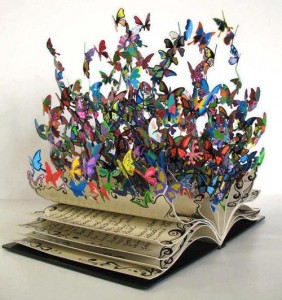literature & technology: book trailers
Before you delve into my article, first watch this fantastic book trailer Australian author Max Barry created for his novel Machine Man at the end of last year:
This is far and away the best book trailer I’ve ever seen, simply because it blatantly makes the point: what is the point of this?
This is something I’ve been trying to grapple with for a couple of years now, since book trailers suddenly started becoming popular. It suddenly became essential, as Barry points out in his trailer, for authors to not only Facebook and tweet and have a website and blog and engage in online interaction with their fans, but to also create a book trailer, so readers can gain insight into what their novel is about. Unless I’m mistaken, is this not the point of a blurb? To entice the reader into buying the book? To convince them that it’s worth their time? So, why would it become seen as necessary for a book, which is predominately a written medium, to have a visual trailer to promote it?
I understand we live in a digital, visual society. But for me, the joy of reading a book is that there are no preconceived images to hinder my reading. Instead, I get to imagine for myself what the characters look like and what their surroundings are, guided by some description from the author. Despite this description, I can assure you that my perception of what is going on in the book will be completely different from everyone else’s. Giving the reader a preconceived idea of what the characters and situations in the book looks like ruins the experience. It’s almost like watching the film adaptation of a book before reading the book itself. Once you’ve trekked down that path, there is no going back to the point of discovery.
What’s more, I’m not quite sure who writers and publishers are trying to attract to their books by creating a trailer for it. From my experience, readers like to do just that – read. To be fair, I unashamedly judge books by their covers sometimes, but if it’s the cover that makes me pull the book from the shelf, it’s the blurb and the first two or three sentences that persuade me to buy it. I want to know the writing is of a high quality and I’m going to get pulled into a plot which won’t let go of me, and a book trailer won’t necessarily tell me any of these things. Furthermore, people who do prefer visual storytelling over written storytelling might become enthralled in the book trailer, but it definitely will not convert someone who isn’t a reader into a reader.
Even though I love Max Barry’s book trailer, I would not buy the book based on the trailer alone. And fair enough: maybe that isn’t the point. Maybe the point is to make me connect with the author, which it does, or make me want to visit his website to find out more, which it does, and maybe from there I’d find the blurb of Machine Man and decide it is the sort of thing I’d like to read. But really, by this point, I’m losing interest already. I have to click through to another site and do more research – chances are potential buyers will have clicked off by then and be watching something else on YouTube, or browsing Amazon for a free sample of a book they may wish to purchase.
I realise there is some contradiction in what I have just said. I’d never heard of Max Barry before I came across this book trailer, and now I at least know who he is. That’s something, right? Yes and no. There used to be a time when authors had some anonymity; when their fame was simply a name on the cover of a book. More and more, authors are expected to promote themselves online and be “seen”. Yes, they’ll get seen, but will it translate to book sales? People will know who the author is, but will the books actually get read? Or will it simply be a case of, ‘Oh, yes, I’ve heard of him. I haven’t read any of his work, though.’
There comes a point where publishers and writers need to stop and think. Just because the potential is there to do something, doesn’t mean you should. Readers want to know the authors they are reading can actually write, not that their words can be construed into a visual representation. They’ll get to see that when the movie comes out. So instead of creating book trailers, I suggest publishers and authors get on with writing and publishing, and attracting readers to the work based on the strength of the writing.



Great article. My main thought after watching his book trailer is that he’s funny. If his book isn’t as funny as his trailer (or even if it’s not funny at all? I haven’t researched the type of book it is…) then I’ll be severely disappointed. It does make you connect with the author (face to a name, now a name you remember), but I’m with you in pondering if that’s all it does. I like that books are written by a semi-anonymous name on a cover – often when the author is revealed to me I’m disappointed that they’re not who I imagined them to be.
Thanks for the comment! I completely agree; I love the annoynimity and I’m always a little shocked when I first see a picture of an author- I don’t think I’ve ever imagined what an author looks like accurately.